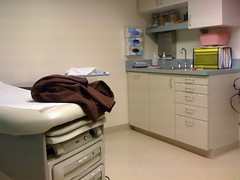 A survey done by Mercer shows that many workers will see their employer sponsored health insurance premiums rise at a slower rate in 2012 than in previous years. It also shows that workers will be asked to pay for a larger portion of their health plans next year.
A survey done by Mercer shows that many workers will see their employer sponsored health insurance premiums rise at a slower rate in 2012 than in previous years. It also shows that workers will be asked to pay for a larger portion of their health plans next year.
Mercer is a consultant that many companies go to for advice on human resource issues, financial advice, products, and services. A business can ask Mercer to conduct a survey for them that gives the business information about how their employees feel about something, or how other businesses are handling a certain problem.
A recent survey from Mercer was done on companies that offer their employees a health insurance plan.
Overall, the survey shows that the average cost of health insurance will increase by 5.4% in 2012. In 2011, the average cost of increase was 6.4%.
The Mercer survey found that if employers keep their current health insurance plans exactly the same next year, that the cost would go up by 7%. However, employers are intending to make changes.
Some will raise the cost of the deductibles that their employees must pay for out of pocket before the health insurance will provide coverage for their health needs. Others are intending to increase the cost of co-payments that employees must pay for out of pocket when they visit a doctor. Some employers are interested in switching from their current insurer to a different one.
About one third of all the employers who took the Mercer survey said that they plan on increasing the portion of the cost of the health insurance plan that their workers would have to pay. This means that the actual increase of cost in insurance that you will see, at your workplace, could be more than 5.4% after all.
Beth Umland, Mercer’s health and benefits research director, has noted that over the past few years, employers have been asking their employees to pay more at the doctor’s office, or to pay for a larger percentage of the medical bill for the treatment that they receive. The result is that workers have become more reluctant to to seek medical attention for “non-urgent care”.
This can be seen as a vicious cycle. Workers put off getting some of the health care they need, because they are struggling to pay for the deductible or the increased co-pay. Employers note that their employees are not using their health insurance as much in a given year as they were the year before. This means the employer can save money on the health plan that is offered to the workers.
It doesn’t necessarily mean that the savings is passed on to the workers, however. It seems to me that the workers are still being asked to pay more for health insurance, even if the rate of that increase has slowed.
Image by jawa9000 on Flickr

